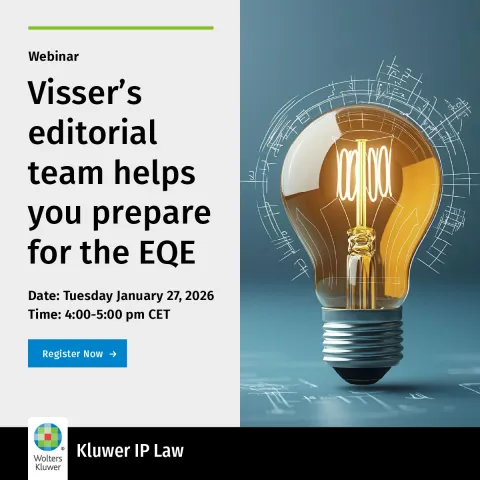The EPO and the Problem of the Right Speed (IV) - Appeal Proceedings
April 7, 2017
The duration of proceedings before the Boards of Appeal (BoA) currently is the EPO’s biggest problem in regard to speed. According to the latest Annual Report by the Boards of Appeal, the average length of inter partes proceedings is 37 months (up 1 month from 2015), i.e. more than three years. In 2016, two appeals were pending that were filed in 2008, six that were filed in 2009, and 33 were filed in 2010, that was eight (!), seven or six years pendency before the decision date. This is clearly not acceptable.
One should assume that this problem, which has been around for at least 15 years, cannot have escaped the EPO management. In view thereof, it is beyond comprehension why several EPO Presidents and the EPO Administrative Council, which is supposed to supervise the EPO management, have not done more in the past to tackle this real problem, and why the current EPO management is instead occupying itself with acceleration measures that the majority of stakeholders do not need or want.
LJ Robin Jacob wrote as early as in 2005 in the Festschrift for Gert Kolle and Dieter Stauder (Heymanns Verlag, 2005) that the EPO opposition and appeal procedures have become so “slow and cumbersome” that, “sooner rather than later, it will be subject to successful attack for breach of Art 6 of the European Convention on Human Rights. I think it is high time that the whole procedure was reviewed from the top to bottom.” Indeed, new Rules of Procedure were introduced in 2007, but the important fact to appreciate is that procedural law is only able to some extent to help reduce the huge backlog of cases and the BoAs’ fundamental problem, i.e. that more appeals are filed every year than settled: According to the Annual Report, 2387 new cases were filed in 2015 and 2287 cases were settled. In 2016, 2748 (!) new cases were filed (up by almost 400), but only 2229 were settled, i.e. fewer than in 2015.
Rather than addressing the cause of the problem, i.e. serious understaffing of the BoA’s, the current EPO President has even further aggravated it by apparently failing or even refusing to appoint additional technical BoA members in 2016. This led to a reduction of the technical members of the Boards of Appeal from 97 to 96 and to an astonishing and deeply worrying number of 23 (!!!) vacant positions for Technical Members on the Boards of Appeal by the end of 2016, according to the Annual Report 2016. In particular, TBA 3.3.02 now seems to be completely dysfunctional, with only one technical member left. This was at least the status by end of 2016; I was not able to find more up-to-date figures on the EPO website.
Of course, I cannot exclude that something close to a miracle happened in the March 2017 meeting of the Administrative Council and that a substantial re-staffing of this and other Boards has meanwhile occurred. But as much as I would wish so, I take little hope from the official communiqué on this meeting, which is as bland and uninformative as always: “The council (...) made a number of appointments and reappointments to the Boards of Appeal”. Why does the Administrative Council not tell the public how many appointments were made and who was appointed or reappointed? I would consider this important information for the public. And why does the Administrative Council not hold the EPO management accountable for the unacceptable duration of appeal proceedings and insist on a reasonable staffing of the EPO’s top judicial deciders?
To be fair to the EPO management, the number of legal BoA members slightly increased in 2016, but this does little, if anything, to solve the problem since usually the technical members act as juges rapporteurs in opposition appeal cases and draft the decisions.
One should expect a competent Office President to take decisive action against the BoAs’ serious understaffing, yet in lieu of that the President seems to be obsessed by the idea that the problem can be tackled by “measures to increase efficiency” (whatever this may mean), including the appointment of a new President of the Boards of Appeal and (again) amended Rules of Procedure:
It will therefore be one of the primary tasks of the President to take the necessary measures to increase the efficiency of the Boards, in order to reduce the backlog in appeals, and safeguard legal certainty for users. The review of the appeal procedure will focus on a revision of the Rules of Procedure to enable proceedings with greater efficiency and consistency. The user community will be involved in this review process through user consultations. Overall, the reform will therefore not only enhance the independence of the Boards, but will also bring about significant improvements for users. It will further trigger a quality review process, ensuring clear and consistent decisions are delivered on time.
I am afraid that this approach is bound to fail almost with certainty. Parties are certainly interested in speedy decisions, yet they also have certain fundamental rights, e.g. the right to be heard and to present their case, as enshrined in Art 113 EPC. And they request and deserve a fair hearing and carefully reasoned and well-drafted decisions. Limiting a party’s right to submit evidence (such as prior art documents) and/or means of attack or defense (e.g. auxiliary requests) may seriously interfere with such fundamental rights and may damage the quality of the decisions and the EPO’s reputation. There is simply a limit to what rules of procedure or “efficiency measures” can do to accelerate proceedings.
In this blogger’s view, the situation is as simple as this: If the number of new appeals increases, we need more BoA members to deal with them. And if there is a substantial backlog of appeal cases, yet more BoA members should be hired at least for a couple of years until this backlog has been reduced to a reasonable level. The EPO should aim for an average duration of appeal proceedings of about 18 months. Yet, as of to date, there is no such official commitment from the EPO management, and the reality is 3-4 years on the average.
Bearing this overriding objective in mind, it also makes no sense whatsoever to have the Boards of Appeal move to new and even smaller (!) premises in the outskirts of Munich. This move, which has been scheduled for September 2017, should in my view be postponed or cancelled altogether.
- The Boards of Appeal need more members and larger premises so that they can hold more hearings per time unit. This is the only realistic way to reduce the backlog of decisions and the inacceptable long duration of appeal proceedings.
Given that moving the BoA to different and even smaller premises does nothing whatsoever to increase efficacy - if anything, it does the opposite - one may wonder why moving the BoA was considered necessary at all. The official EPO reasoning is this:
In order to maximise the positive effects of the perception of independence, the Boards of Appeal will also be physically separated from the administrative parts of the EPO.
For the life of me, I do not understand this. I cannot see that a Board of Appeal would be perceived more (or less) independent if it is physically separated from the EPO administration by 12 km or so. Whenever I was concerned about the Boards’ independence in the last few years, this was due to certain actions by the current Office President against one BoA member in breach of the procedure prescribed in Art 23 EPC and against the Enlarged Board’s order to hold a public hearing in this case. Moving the Boards to a different location does not cure this problem; moving instead the President to a place outside the EPO would certainly be much more effective and (probably) also cheaper.
Searching for some more optimistic news from the EPO on this topic, I found the following piece of prose:
Together with other measures, such as a new location, rules on conflict of interest for its members, a specific career system and better cost coverage, the tools are now in place for the BoA to carry on their role as a highly respected, independent and efficient judiciary. There is now every chance that the Boards can better address some concerns of users regarding timeliness, predictability and consistency of the appeal procedure expressed during the reform process. The BoA, of course, has not been alone in facing such issues; judiciaries across the world have faced increased demand for their services and pressure to deliver more judgements while ensuring quality of work. However, every effort has been made so that the EPO BoA are now better equipped and will continue to play an important role in European patent litigation.
Therefore, rest assured, dear readers, that all is well with the BoA. They are now “better equipped”. You wonder, how that? The answer is, by a new BoA President and “a new location, rules on conflict of interest for its members, a specific career system and better cost coverage”? Do you still have doubts? It is certainly a step in the right direction that the BoA now have a new and formally more independent President, Mr Josefsson, who assumed office on 1 March 2017. But will he also have the budget to employ more deciders, particularly technical members?
Let us hope so, and let us, for once, dispel the skepticism expressed – in a different context – in footnote 8 on page 273 of the truly inspirational book “IP and Other Things” by the honorable Lord Justice Robin Jacob, who wrote in the year 2015:
A realist would ignore the pompous, own-trumpet-blowing self-congratulatory stuff which appears from time to time on the EPO President’s blog.
You may also like















MaxDrei
Readers I offer two possible explanations, A and B, for the bizarre behaviour of the EPO President. A: in the interests of the Paris-based UPC getting a flying start, he wants to disable Munich-based DG3. B: Currently, the Americans are re-stocking the numbers of judges at the USPTO, with staggeringly large numbers involved. But an Enarque can show the Americans what business efficiency looks like, and BB is the man to do it. Every time there is a meeting of the Group of 5, the bosses of the world's 5 biggest Patent Office, BB is there with ever more impressive statistics to show the other four how, but only during his watch, the EPO has squeezed more output out of the Organisation, with ever higher "quality" and at the same time, ever-reduced costs. Is there anything in explanations A or B?
A good friend of the Boards
It is an absolute disgrace that the backlog in appeals has, by the own figures published by the Boards, increased. The reason is due to a chronical understaffing of the Boards. This chronical understaffing is a deliberate action of the president by not presenting to the administrative council new members and chairpersons in order to replace those leaving. Even the renewal of actual members was put on hold…. Here, like in DG1, emphasis is made on quantity and not on quality. For the president the members of the boards are simply too lazy and need a good push. Have you seen in any country the judges being obliged to give a minimum number of decisions per year in order to retain their job? This is what will happen with the new rules for renewing the contract for members. The carrier of member of the boards has also been made unattractive, as there is no salary increase in the five years of a contract. A renewed contract will only be granted, and a corresponding increase in salary given, if the performance of the member has been considered “adequate”, not to use a worse word. I fully agree that the sending of the Boards to Haar will not improve the situation in the slightest. On the contrary it will degrade it. The reason is very simple: the building is too small since it does not have enough rooms for the Boards to hold oral proceedings on the premises. Especially the number of rooms with simultaneous interpretation is anything but commensurate with the needs. So the boards will have to come back to the Isar building in order to hold their oral proceedings. Where is the gain in efficiency? By now it should abundantly clear that all the actions against the boards and especially the sending of the boards to Haar is a nothing more than a revenge of the president over the boards. The enlarged board has not accepted to simply dismiss a member of the boards as the president wished. It has not accepted that the president has simply disregarded the separation of powers. This is however a basic requirement of any properly working society, which is not governed by an autocratic leader. In this respect the administrative council, at least some members of it, have been truly accomplices of the president’s endeavour. When one looks at the vote in the administrative council, it is a majority of countries filing hardly any European applications, and hence having hardly refusals or oppositions, which made it possible to take the decision to change the carriers of the members and on top of it to send the boards to Haar. One wonders why? That some boards apply the rules of procedure, or remit under Art 111, in way which allows to raise eyebrows, has however also to be said. But they are in a similar position as the examiners, and their position can be understood. That in any system, a judicial institution is not in a situation to cover its costs, should not be taken against the boards of appeal of the EPO. The idea of simply increasing the appeal fee to ludicrous levels is also an attack on the users of the system. If the fee is too high, then the number of appeals will decrease. Is this rendering justice? The boards of appeal are not any longer allowed to decide on their rules of procedure. The rules of procedure can only be adopted by the administrative council after the Boards of Appeal committee (comprising no members of the boards) has approved them and the President of the EPO had an opportunity to comment……. The only body in which members of the boards are represented is the presidium of the boards, and this body merely advises the President of the Boards of Appeal on proposals for amendments to the Rules of Procedure. Is there more to say? I can only encourage readers of this blog to have a good look at the changes of the structure of the boards. On the paper, they look more independent, but on reality the contrary is true. In my opinion the whole attack on the boards, is part of a long strategy. It is to weaken them so that in the long run everything will be dealt with by the UPC. Examination will consist in a quick look at prior art, followed by a quick grant, and any dispute afterwards will come before the UPC. The boards of appeal having more or less disappeared, there will also not be any risks of conflicting case law. Is this not wonderful? By acting like this the president of the EPO and its followers are not only cutting the branch on which the staff of the EPO is sitting, members of the boards included, they also cut their own branch, and more worrying, they are cutting the branch on which the whole profession is sitting, at least as far as prosecution is concerned. Those firms also doing litigation will suffer much less. And look at the firms who have pushed the UPC through. No surprise…..
slartibartfast
Of course, another way to help reduce the rate of growth of the backlog would be to improve the quality of decision-making at first instance. I don't mean the EPO's much-trumpeted "quality" ratings, but *real*, high-quality decision making. Speak to any attorney in private practice and you will find anecdotes by the bucketload confirming the increasing frequency of rushed, slapdash search and examination reports, incomprehensible or unreasoned objections, and opposition decisions taken by evidently inexperienced Opposition Divisions. I have the utmost respect for the EPO examiners and know that they are capable of doing a very thorough job, but it seems that the current focus on conflating speed with quality is severely detrimental to the real quality of work. Bad decisions lead to more appeals: it is as simple as that. I am sceptical about the rumours that the Boards are being deliberately downgraded to pave the way for the UPC, however. For inter-partes proceedings the UPC can indeed, in principle, take the place of the boards. But the UPC will not have jurisdiction to review ex parte cases in the event of unjustified refusal of a patent application.
Look at things
To Max Drei, To me it is more option A which is valid (80%), whereby option B is not to be neglected as it pushes the ego of mr president ever higher. In any case it is disgusting to transform a well working and reputable institution in a work floor churning out patents in a form and in a way which is not desirable for its users. EPO looks more and more to industry as it was known in the former Eastern European countries! Ignore what the customer desires, but adhere to the plan as strictly as possible. We all know were planned economy led to. I do not wish the EPO to end up in a disaster, but with the present management it will sadly end up in a disaster.
Observer
'Appointments' this time was actually a single external legal member (MC?) appointed to the EBoA. All others announced were re-appointments.